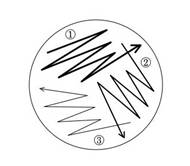AGL-1农杆菌感受态细胞
产品名称: AGL-1农杆菌感受态细胞
英文名称: AGL-1农杆菌感受态细胞
产品编号: Biovector512343
产品价格: 0
产品产地: Biovector NTCC Inc. USA
品牌商标: Biovector, Addgene, ATCC, Invi
更新时间: null
使用范围: null
- 联系人 :
- 地址 : 北京市西直门外大街19号BioVector NTCC典型培养物保藏中心
- 邮编 : 100080
- 所在区域 : 北京
- 电话 : 189****8599 点击查看
- 传真 : 点击查看
- 邮箱 : Biovector@163.com
Product Data Sheet
|
Order ID |
Name |
Description |
|
Biovector178239 |
AGL-1 |
AGL-1, rifR.in YEB. Storage:4℃ |
|
Agrobacterium Strain |
Chromosomal Background |
Marker Gene |
Ti PLasmid |
Marker Gene |
Opine |
|
AGL-1 |
C58, RecA |
rif |
pTiBo542DT-DNA |
- |
Succinamopine |
Direct chemical transformation of Agrobacterium AGL-1:
Freeze-thaw method
1. Add about 1 μg of plasmid DNA to the cells.
2. Freeze the cells in liquid nitrogen.
3. Thaw the cells by incubating the test tubes in a
4. Add 1 ml of YEP medium to the tube and incubate at
5. Centrifuge the tubes for 30s in an Eppendorf centrifuge. Discard the supernatant solution. Resuspend the cells in 0.1 ml YEP medium.
6. Spread the cells on a YEP agar plate containing appropriate antibiotic selection. Incubate the plate at
 Storage of Agrobacterium Strains by Low-Temperature Freezing
Storage of Agrobacterium Strains by Low-Temperature Freezing
1. Inoculate 2 or 3 mL of YEB media that contains the appropriate antibiotics for plasmid maintenance with your strain).
2. Grow the culture to early or middle stationary phase (usually overnight). Chill the culture and the sterile medium containing 50% glycerol on ice.
3. Add an equal volume of the medium with glycerol to make the culture 25% glycerol. Mix culture and medium completely.
4. Transfer the cells to a labeled 2-mL tube, and place it in the freezer. The frozen culture can be stored indefinitely.
5. To recover the strain, simply scrape a bit of the frozen culture onto plate medium
containing the appropriate antibiotics. This can be done with a sterile, cooled,
inoculating loop or with a sterile pipet tip. It is important to handle the culture
quickly to prevent thawing and refreezing. If handled properly, the same culture
can used repeatedly for retrieving the bacteria strain.
